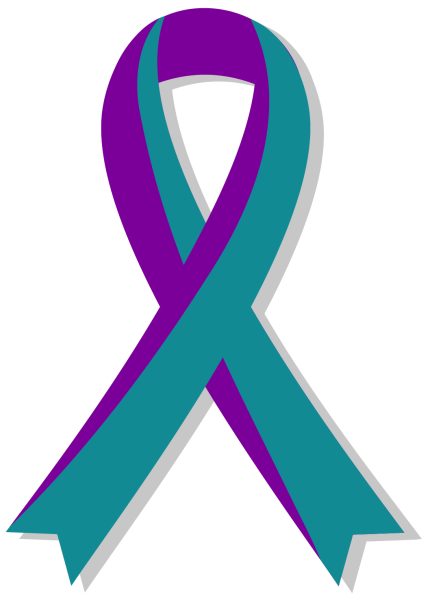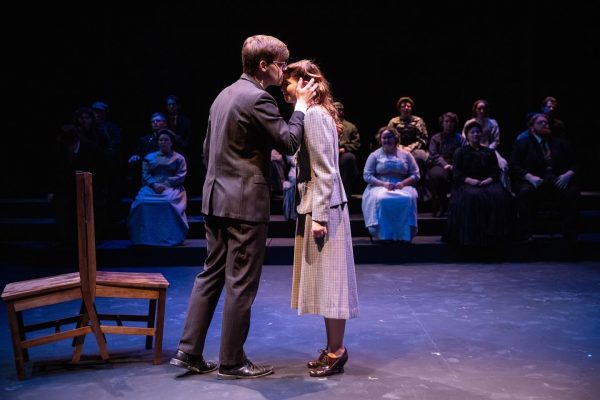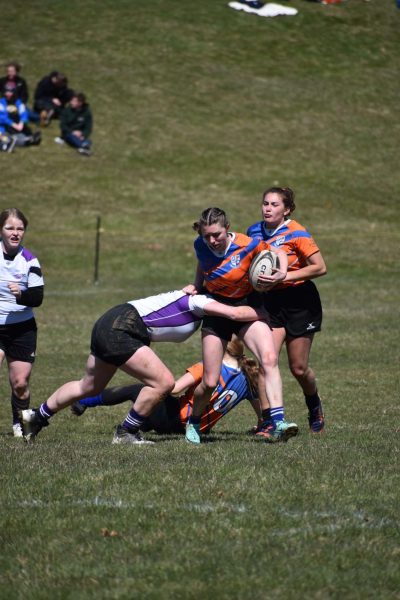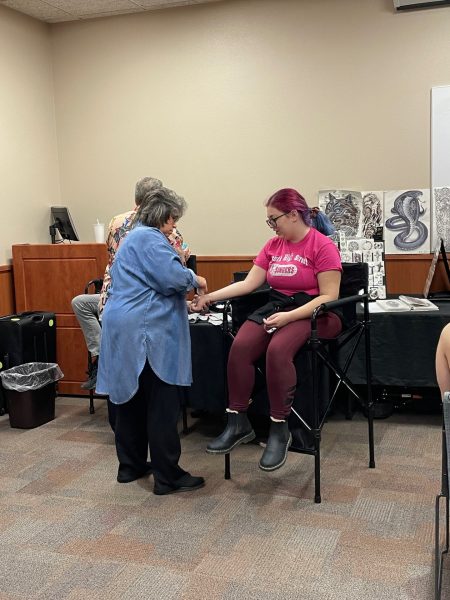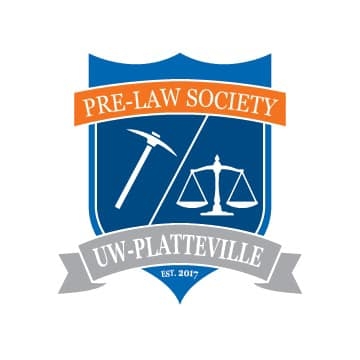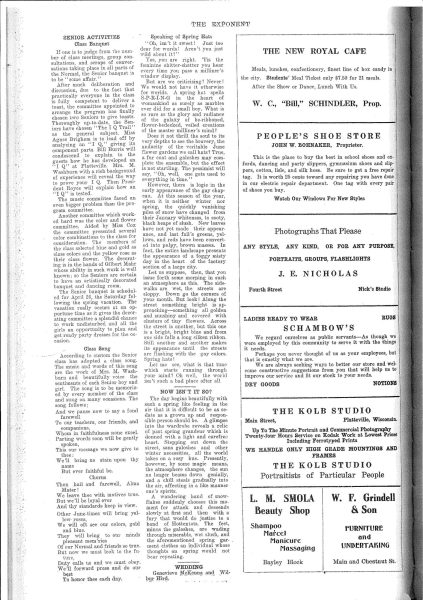Professors weigh in on compressed courses
Unless students have leftover financial aid, they have to pay out of pocket for compressed timeline courses, but the University of Wisconsin-Platteville and instructors may or may not be getting their money’s worth. The overall value of these courses to the students, professors and UW-Platteville as a whole is called in to question.
A compressed timeline course for the summer is 10 weeks long with a two-hour class every weekday. A winterim class, on the other hand, is two weeks long with a four-hour-long daily class, including Saturdays in the learning week. This allows an entire semester’s coursework to be covered in the shortened time frame.
The cost of one credit for a winterim or summer course ranges from $312-$627 for a UW-Platteville student. Taking a 3 credit class adds up to approximately $1,000. This does not including the extra costs such as living on campus or meals.
According to an email from Sara Voigts, Associate Budget Planner, an instructor’s salary depends on the college they teach in (LAE, BILSA, or EMS). Voigts said a typical salary is $1,200 per credit. Every class offered must have at least 14 registered students or instructors are not paid the full amount, receiving $257 per student.
Funding for instructors’ salaries is not included in the official budget because they are expected to pay for themselves through the student’s tuition charge. This means that part of the money that comes in from student’s tuition goes toward paying the instructor’s salary.
The budget office does not track the extra revenue, and after paying for the costs of the class and salary of the instructor the extra revenue goes into the general tuition pool. Voigts said the extra revenue that gets put in the general tuition pool from winterim has gone toward things such as Provost Grant funds (scholarships for full-time faculty and academic staff), the Heartland Festival and international scholarships.
Many general or lower division classes and even a few upper division classes are offered for all majors across campus during the summer session. Winterim is much more limited, as the time in the classroom is much longer than a typical class period and because the course only takes place over two weeks. Julie Homb, an instructor in the Biology Department said that these two factors prohibit the heavy informational, extensive writing or reading classes from being offered during a winterm or summer session.
Instructors are not required to teach summer or winterim classes; they are taught on a voluntary basis. Wendy Stankovich, an instructor in the Biology Department said that the compensation for instructors has gotten much better since the dean of BILSA, Wayne Weber, took the position.
Donna Gavin, an instructor in the Computer Science and Software Engineering Department said that the extra compensation for teaching winterim is very helpful for bridging the three-month summer gap with no salary.
Robert Snyder, Media Studies instructor, teaches the classes to help students. Snyder has taught winterim and summer sessions since 2001, and offers the classes even if there are only a few students taking them because it is worth it to him if it helps a student graduate on time.
According to a PowerPoint presented at an Aug. 7, 2014, general faculty meeting, the Higher Learning Commission notes that the US Department of Education has expressed concerns about compressed timeline courses. Four university subcommittees are working on HLC accreditation, which comes up in 2016-2017, and compressed timeline courses are one of the issues being addressed.
Snyder said that even if the timeline is compressed, he still has his students write, read, and do the same amount of assignments that a student does in a normal semester. Julie Homb of the Psychology Department said she gives a quiz every day to ensure that her students are grasping the concepts.
Students and instructors made suggestions as to how UW-Platteville can save more money, how valuable they think the compressed timeline courses are and how to improve these classes. John Obielodan, who teaches Advanced Manufacturing Processes in the Mechanical Engineering Department during winterim, said that it is sometimes difficult to keep students engaged when covering so many topics in such a short time when the class periods are four hours long.
Gavin, who teaches Microcomputer Applications during winterim, says she has noticed that her students are more focused during the compressed timeline courses than the normal semester.
Stankovich teaches General Biology during the summer session and loves how she saves hours of time she would not typically save during the semester-long General Biology course. Stankovich said she likes how she structures her compressed timeline course better than a typical fall or spring semester because she can teach on a subject then go straight to the lab so students will experiment on what she just taught about.
On the other hand, Melissa Gormley, a World Civilization II instructor, says that when she first taught winterim it was extremely difficult to keep the students engaged. Learning from that experience, Gormley said she rearranged her classes to incorporate discussion and change of pace to keep her students focused and engaged. Gormley said a student’s focus really depends on the instructor and how they structure the class – that will dictate how engaged students are and what kind of retention they will get from it. Because students must pay out of pocket for these classes before they begin, Gormley said that financial aid should be offered increase interest from students who are behind or need to catch up.
Homb said that teaching on Saturdays was difficult for students and as well as herself because it was hard to focus. She suggested that UW-Platteville eliminate Saturdays as a class day to give a bigger break to the students, allowing them to focus more on normal teaching days and giving them the ability to get more done.
Obielodan has a new idea for making money for UW-Platteville and reaching out to an increased number of students. Obielodan said that streaming lectures will open the doors of opportunity to students so they do not have to physically be on campus. Streaming classes is different than online classes because the students will be watching the lectures in their own time instead of a typical online class where there are no instructor videos. This will allow students to take their internships and co-ops during the summer as well as catch up on credits they are behind on or even work ahead.
Obielodan said that UW-Platteville would record current lectures and then have that instructor manage the streamed online class. Obielodan did not mention where the funds to pay for the recording, editing, and extra salaries would come from, just that it was an option he thinks should be investigated. He said that this will allow UW-Platteville to open up more courses for less cost, giving the campus the ability to enlarge their revenue stream.




